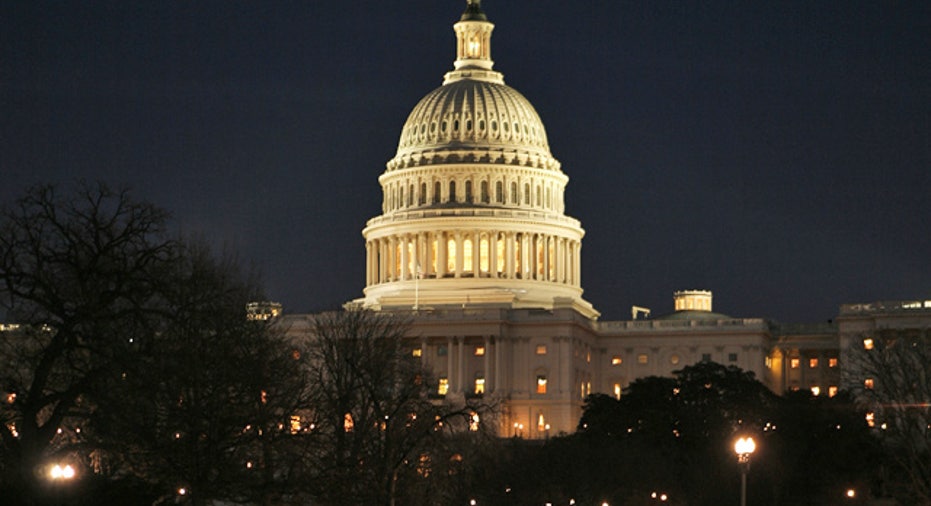Proposed Tax Hikes Would Target Families Earning $250K+

More than ever, President Obama is counting on higher taxes on wealthier families to help reduce budget deficits.
In new details on the deficit reduction plan the President proposed Wednesday, the Office of Management and Budget said the plan's $1 trillion in new tax revenues would be generated mainly by reducing or eliminating tax deductions for individuals earning more than $200,000 a year and families earning more than $250,000 annually. OMB indicated that middle class families would keep their tax breaks under the plan.
“The tax code is loaded with hundreds of billions of dollars in loopholes that help those that need it the least," OMB spokesperson Meg Reilly told FOX Business in an email response to questions about the plan "What the President called for yesterday was a bipartisan effort to reform our tax code in a way that would make it fairer, simpler and a better deal for the middle class. But he does not believe that we need to increase the burden on middle class families to do this."
In a briefing with reporters, OMB director Jack Lew said “the vast majority of special provisions and preferential rates are for those with the highest incomes.”
The proposed higher tax payments for upper-income families would come on top of $800 billion in tax increases on them that the administration proposed in February in its 2012 budget. The money would come from letting the Bush tax cuts expire for top earners at the end of next year and restoring higher taxes on estates. Because the additional tax revenue would require the Treasury Department to issue less debt to finance government operations, OMB says the changes also would save about $150 billion in interest payments over 10 years.
"The President's goal is to raise $1 trillion in revenues in addition to allowing the upper-income tax cuts to expire," Reilly said. "Extending the upper-income tax cuts would add $1 trillion to the deficit."
Extending for Bush tax cuts for middle class taxpayers costs about $3 trillion over the next decade, according to the administration’s 2011 budget.
While they favor tax reform, Republicans say new tax increases on upper income families could hurt entrepreneurs and small business owners and are a non-starter in budget negotiations.
"Raising taxes is not what we need right now...especially while we are trying to get job creators back into the game," House Republican Leader Eric Cantor (R-Va.) said.
The Republican plan, like the president's plan, targets trillions in deficit reduction; so does a third plan, from the president's bi-partisan fiscal commission headed by former Wyoming senator Alan Simpson, a Republican, and former Clinton Administration official Erskine Bowles. But each plan proposes different paths to lower deficits over different periods of time.
The Republican budget would reduce deficits by $4.4 trillion over 10 years through spending cuts alone. The president's plan would cut deficits by $4 trillion over 12 years, with $1 trillion in new tax revenues and $3 trillion in less spending. The Simpson-Bowles plan would cover 10 years with the same proportion of tax revenues and spending cuts as the president’s plan.
All three plans propose major tax reform for both individuals and businesses, mainly through eliminating tax deductions and benefits; the reforms in all three would sharply reduce top tax rates for individuals, families and companies.
"Every single plan is talking about $4 trillion worth of deficit reduction,” Bowles said after a meeting at the White House with Simpson and the president. “That's the key. And now what we have to do is take the best ideas out of all plans and get to real action."
In its 2011 budget, in addition to calling for an end to the Bush tax cuts for upper-income taxpayers, the administration proposed limiting tax deductions for them to raise an extra $600 billion. The administration did not repeat the proposal in its 2012 budget, which it said made a “down payment” on deficit reduction by only repealing the Bush tax cuts for top earners.
All of the Bush tax cuts—for middle and upper income taxpayers-- were scheduled to expire at the end of 2010, but the president agreed to extend them in a compromise with Republicans in December on a new economic stimulus package.
“In December, I agreed to extend the tax cuts for the wealthiest Americans because it was the only way I could prevent a tax hike on middle-class Americans,” the president said in announcing his deficit reduction plan on Wednesday. “But we cannot afford $1 trillion worth of tax cuts for every millionaire and billionaire in our society. We can’t afford it. And I refuse to renew them again.”
Reilly suggested some tax revenues in the president's new deficit plan also could come from reducing or eliminating business tax breaks, something the administration proposed previously.
"We're looking forward to hammering out those details with Congress in the months ahead," Reilly said.



















